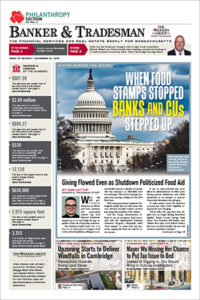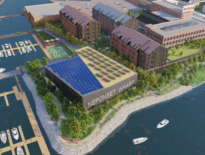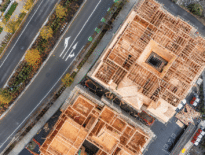
Joseph A. Barra
In 2022, the Appeals Court issued the first appellate decision in Massachusetts interpreting the commonwealth’s Prompt Pay Act. In Tocci Building Corp. v. IRIV Partners, LLC, the Appeals Court strictly construed the act, holding that an owner who failed to timely advise its general contractor of the specific factual and legal reasons as to why it was withholding payment, coupled with its failure to certify that such funds were being withheld in good faith, violated the Prompt Pay Act and was thus liable to the contractor for the funds purportedly owed.
However, the Tocci decision left unanswered the question of what happens to the substantive defenses of the payor who has purportedly violated the act.
More specifically, does a payor who violates the Prompt Pay Act lose its right to later argue in a subsequent adjudication that the payee is not entitled to the funds it seeks because it committed fraud? Performed defective work? Or is in violation of some other material contract obligation?
Last week, the Supreme Judicial Court answered that question in Business Interiors Floor Covering Business Trust v. Graycor Construction Company, Inc., et.al.
Case Stems from Theater Project
In Business Interiors, a project’s general contractor, Graycor Construction Co. Inc., entered into a subcontract with Business Interiors Floor Covering Business Trust to perform certain flooring work for a movie theater project in Boston. During construction, Graycor failed to formally approve, reject or certify that its withholding of payment on three of Business Interiors’ applications for payment was in good faith.
Business Interiors sued Graycor in Superior Court alleging breach of contract (among other theories), and moved for summary judgment, arguing that Graycor failed to comply with the Prompt Pay Act and was thus liable for the unpaid invoices. The Superior Court agreed and entered separate and final judgment against Graycor for the outstanding receivable.
Graycor initially appealed to the Massachusetts Appeals Court, arguing, among other issues, that it had valid defenses supporting its failure to pay including the doctrine of impossibility. Nevertheless, the Supreme Judicial Court exercised its authority for direct appellate review and elected to decide the appeal itself.
In its decision issued June 17, the Supreme Judicial Court rejected Graycor’s position, holding that under the Prompt Pay Act, “a party that neither approves nor rejects a payment application within the requisite time must first make the payment in order to pursue any defenses in a subsequent proceeding.” The court added that a general contractor who fails to comply with the act and fails to make payment “prior to, or contemporaneous with” its assertion of any defenses to payment in a subsequent proceeding, waives its right to later argue that the subcontractor is not entitled to payment.
Court Sets Up Deadline
The Supreme Judicial Court’s analysis credited the amicus brief submitted by the act’s original author, the Associated Subcontractors of Massachusetts (Disclosure: I wrote the amicus brief on its behalf).
Specifically, the court cited the association’s argument that, “To the extent the [contractor] has any viable contract or common[-]law defenses to payment, such defenses are still available for presentation in a subsequent forum. However, the contractor must first pay the funds purportedly owed and then seek to disgorge such funds in a succeeding adjudication.”
The Supreme Judicial Court’s decision essentially sharpens the Prompt Pay Act’s teeth by establishing a “do or die” deadline for payors on projects subject to the act’s protection.
Payors must either comply with the act by timely advising and certifying the reasons for withholding monies to the downstream payee, or if you don’t, pay the amounts alleged to be due before you formally present any such defenses in a subsequent adjudication.
A failure to comply with both requirements will result in the waiver of “any defenses … related to the invoices, as the invoices have been deemed ‘approved.’”
The Business Interiors decision is thus a warning to owners, developers, lenders and other payors who have downstream payment obligations on projects that are subject to the Prompt Pay Act’s protection: One who fails to comply with the act will nevertheless be required to pay invoices that are allegedly improper or unjustified in exchange for the right to later contest the propriety of amounts claimed to be due.
Joseph A. Barra is a partner in the Boston office of Robinson+Cole and practices construction law.






